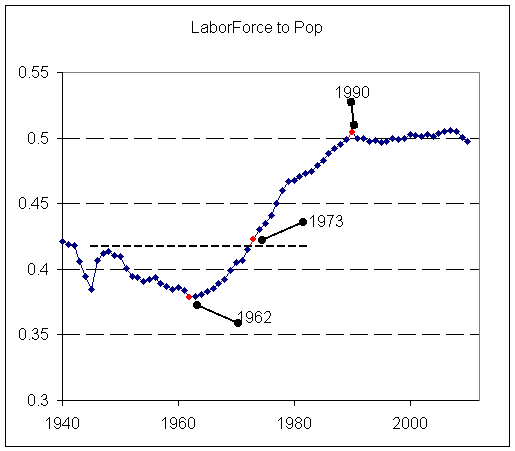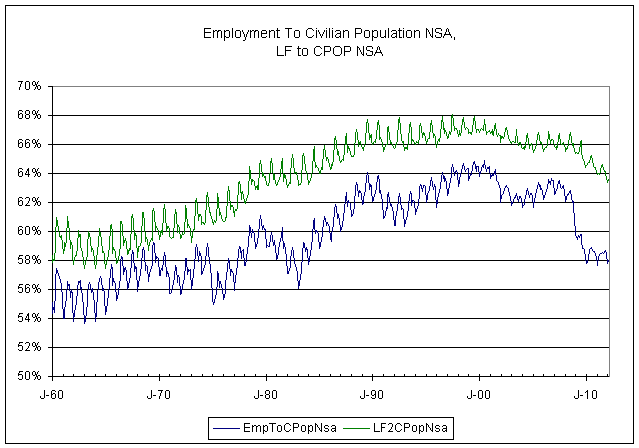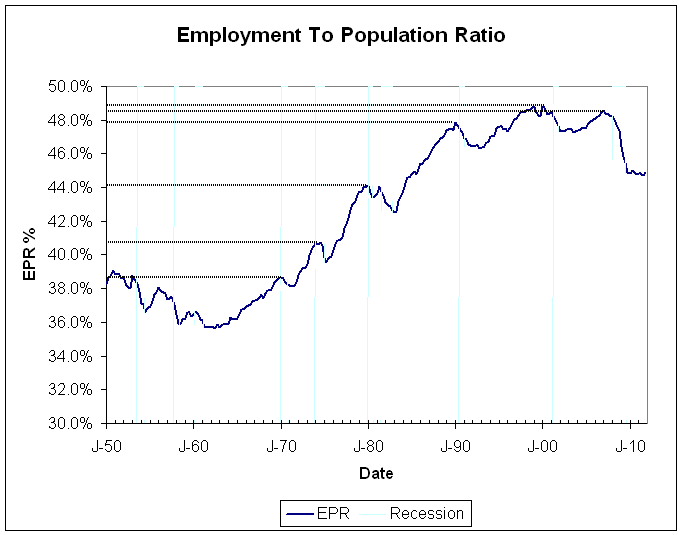You seem to be suggesting that wages should be based on some other factor(s) than market forces, perhaps need.
No, that's not quite right. What I'm saying rather is that when you get down to the particulars of what constitute "market forces," you find that a lot of this is set or at least influenced by government policy. With respect to the labor market, important government policies include trade agreements, tax policy, immigration policy, and enforcement of labor rights (especially collective bargaining rights). All of this influences either the demand for labor or the bargaining leverage held by labor or both, and so the way that "market forces" result in wages being set. It can be done in one direction or the other, to drive wages up or to hold them down, but it can't NOT be done.
Except occasionally with something like minimum wage laws, the government doesn't try to replace market forces. Instead, it uses government policy to help determine how those forces operate.
Do you believe those mixed systems you referred to are paying employees a higher wage than necessary?
What does "necessary" mean? Higher than would happen if government policy were set to keep wages down instead of push them up? Certainly. And therefore, higher than they could possibly be? Absolutely. Is this higher than "necessary"? According to whom?
Can't imagine how overpaying workers would result in higher employment, or make up for the loss of jobs from advances in technology.
Well, it certainly won't do the latter, which is why I'm not advocating it at this point. I'm merely pointing out a problem. It's a new problem, so solutions applied in the past to other problems won't solve it.
This business of wealth redistribution, do you really think you're going to get enough revenue to make a significant difference?
Let's talk a little about this word "redistribution." I don't like it much, and consider it misleading, because it implies that wealth is naturally, or even rightly and properly, distributed in a certain way, and that any change in this is interfering with something else. Or it even ignores the fact that wealth is distributed in the first place, and treats it as if it magically found its way into the hands of those who own it, as if this were a static state to be revised and not an ongoing process that might be shaped so as to generate a desired future outcome.
The reality is that in an advanced economy, wealth is produced collectively, not individually, and the more advanced the economy the more true that becomes. Prior agreements and laws determine how the wealth, once produced, is divided among all citizens and residents. There is no such thing as "natural" ownership. Nature does not come with title deeds. Ownership is a societal artifact, something that law, custom, and tradition determine through interactions with one another and with society as a whole.
In a capitalist economy, the way this works involves an agreement among the owners of capital, their employees, and their suppliers. The business produces X volume of goods to market, which are sold to generate a certain revenue. The suppliers get paid Y for the raw materials and other goods necessary to produce the goods marketed by the company. The employees get paid Z in wages. The investors get back the remainder. How these agreements come about is a function of bargaining leverage on all sides and so is influenced by government policy, but whatever happens the agreement determines how the collectively-produced wealth is divided up. This is the ORIGINAL distribution of wealth -- and it's not something that just happens, it's something that our laws, customs, and other factors which we collectively decide MAKE happen in this way.
Now, in addition to this, we have to regard the distribution of wealth as a circle, not a straight line. Because (and to the extent) the workers receive a share of the goods produced -- that is to say, because wealth is distributed -- a market exists for the goods and services produced. It all comes down to the economy producing goods and services and getting them into the hands of those that need and want them; anything along the way like profits and contracts and whatever is just means to that end, or impediments to it, as the case may be. Producing goods and services and distributing them among the people is the job of an economy; success in doing this makes an economy successful.
The problem we're facing now, as I see it -- and this is a new problem, so old liberal solutions won't work to solve it -- is that we are now in many cases able to produce those goods and services without labor, or with much less labor. So a crucial part of the way that a capitalist economy distributes goods and services among the people is breaking down.
Imagine, if you will, the logical conclusion of this: an economy in which ALL jobs are gone, and EVERYTHING is produced by machine. (I'm not saying we'll ever reach that point; it's probably not cost-effective to do so. But it serves as a good illustration to consider it anyway, sort of like an ideal gas.) A company, owned by investors, produces cars (let's say) entirely through robot labor. All other companies do the same, producing whatever it is they produce. There are no jobs, and so for anyone who is not a capitalist, that means there's no income.
But how can those cars be sold? They can't, because nobody has an income with which to buy them, except for other capitalists, and there just aren't enough of those; plus all of them are running into slack sales for the same reason. And so, for failure to distribute wealth, for maximum efficiency in the production of wealth, the entire economy breaks down and everyone starves.
And yet -- if we step outside the demands of capitalism for a moment, and forget the fact that the investors "own" and are entitled to the revenues of the companies producing all this stuff, the idea of robots and other machines doing all the work could sound a lot like a return to the Garden of Eden, couldn't it? Nobody would work a job because nobody would have to. We would all be served by mechanical slaves providing us plenty of everything, including leisure with which to do whatever we want.
Two pictures of an extreme of this development, one nightmarish, the other utopian. Neither represents precisely where we are going -- but both serve to illustrate the developments I'm referring to.
EDIT: dblack, please read this post. I think it responds to your statements, too.






